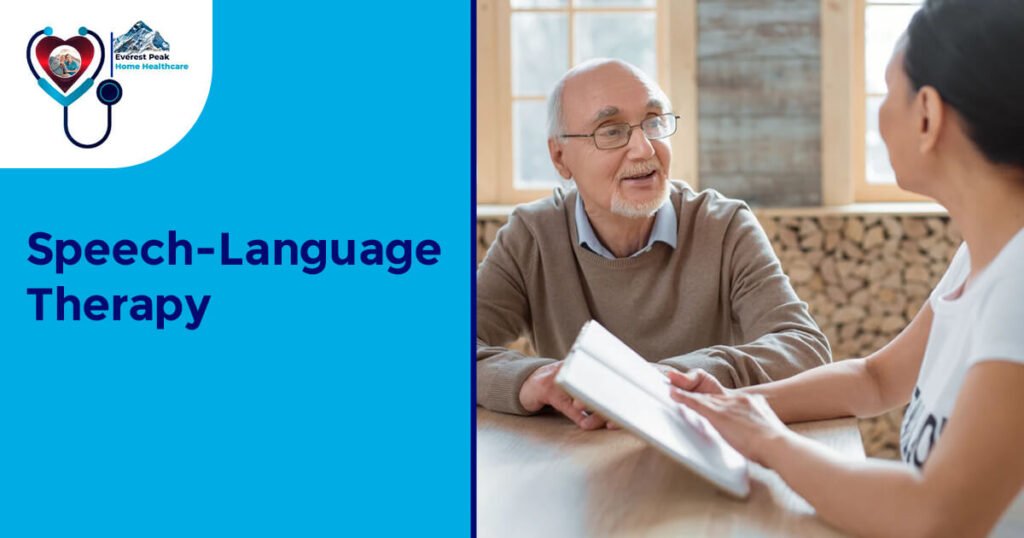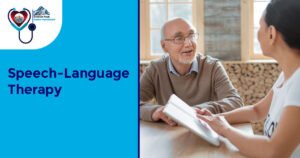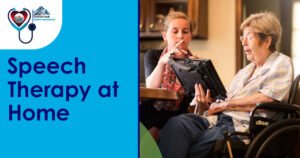From the beginning, human beings have communicated with each other in regard to their thoughts, emotions, and needs and expectations from the rest of the world. But it may happen that some people fail to really do this due to various speech, language, and feeding challenges. Thus this aspect becomes a major area of concern when it affects the daily life of the individual. Developmental speech language pathology is an area of intervention that addresses the problems regarding speech, language, and feeding. Everest Peak is passionate about empowering people of most ages by delivering well-organized individual therapy founded on the evidence-based strengthening of social interaction, communication skills, and the improvement of overall quality of life.
What Is Speech-Language Therapy?
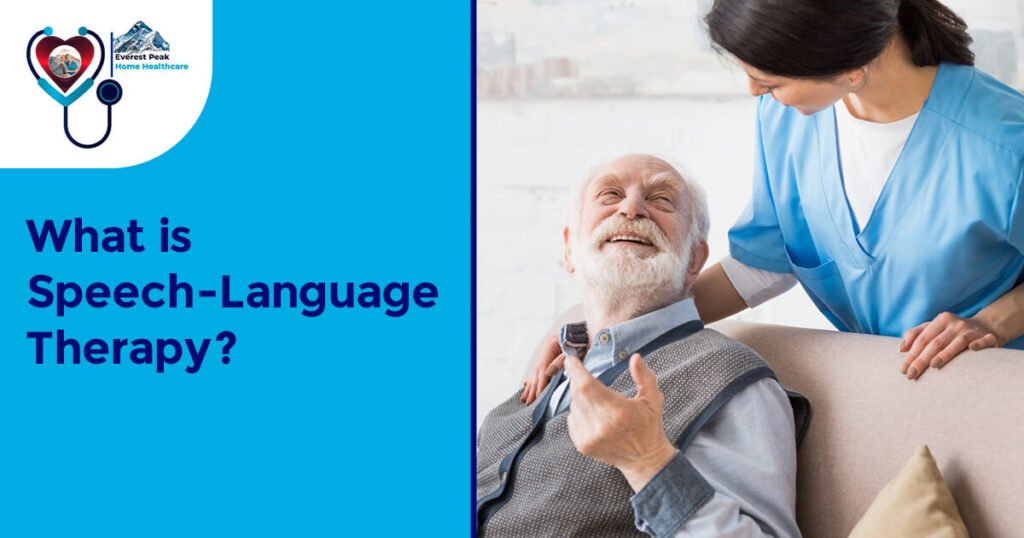
Speech-language therapy is a health professional field concerned with general improvement in yours ability to communicate as well as with understanding the language of reasoning and handling feeding or swallowing. It has a comprehensive application of challenges, ranging from a simple speech disorder to a complicated articulation, language disorder, and feeding disorder that may face individuals of different ages-few months to old age.
Speech-language therapy service at Everest Peak is designed uniquely for every client so that they can face problems in receiving communication across their lives, and its users will experience an enhancing quality of life. We understand that communication is very important to him for personal, academic, and professional success, and our mission is to empower him with tools and skills he needs for confident expression.
What Are Speech Disorders?
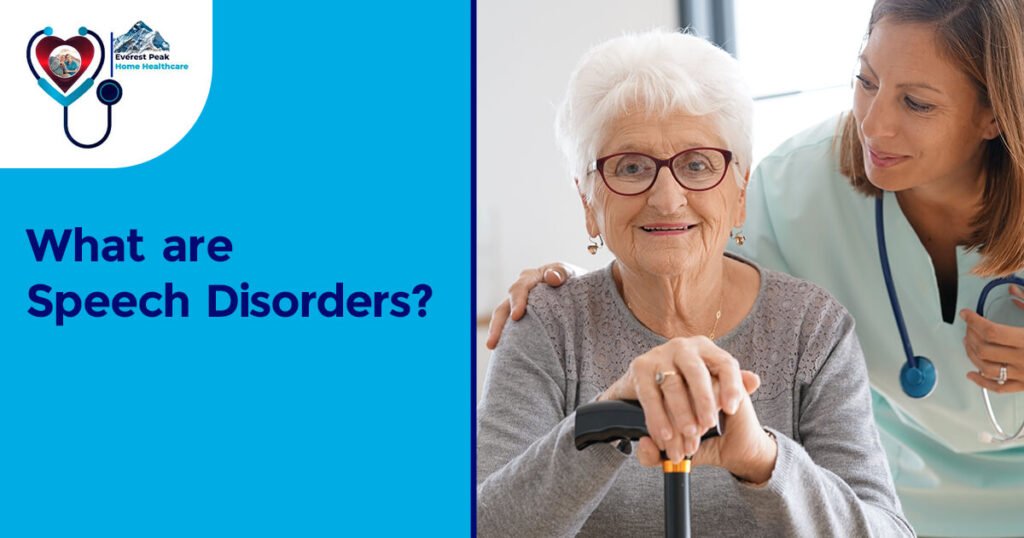
Speech disorders are conditions that hamper the ability of a person to put forth the right sounds in either proper or fluent sequence. Such conditions make it hard to understand the speaker. Some of the causes are developmental delay, certain neurological, or injury-related. Common types of speech disorders include:
Articulation disorders. In articulation disorders, a person has difficulties articulating his or her speech sounds, often in ways similar to that demonstrated by this child saying ‘wabbit’ instead of ‘rabbit’.
Phonological Disorders: Unlike the articulation disorder, which examines the way sounds are made, a phonological error typically means any kind of sound pattern error. For ex: a child would say “ca” instead of “cat,” not because he is inaccurate in production of the sound but because he simply doesn’t finish the end of the words.
Fluency Disorders: The flow of speech is disrupted by these problems called stuttering. They may repeat sounds, syllables, or words, or they may have pauses.
Voice Disorders: A voice disorder is a pitch, loudness, or quality abnormality unintended with voice phenomena such as hoarse or strained voice. Their causes are linked with vocal strain due to overuse or other medical factors.
Apraxia of Speech: This is the motor-speech disorder that clinches incoordination in the movements necessary for speech since it is an occurrence, normally, about neurological or developmental conditions.
Everest Peak Speech Therapy utilizes multiple evidence-based practices such as repetition, modeling, and interactive games in the clinic to help them make speech and communication a game to enjoy.
What are language disorders?

Language disorders are generally different from speech disorders, such as problems relating to understanding and expressing language as opposed to using sounds. Communication in daily-life situations may then be affected appreciably for the person in question.
Receptive Language Disorder: Receptive language disorders cause a problem understanding spoken or written language. Difficulty in following through with instructions may be evident and also an attempt to understand meaning of words along with interpretation questions and conversations.
Expressive Language Disorders: This is a problem with the expression of thoughts, needs, or ideas. An individual may have difficulty in communication due to incomplete sentences, wrong grammar, or limited vocabulary.
Mixed Receptive-Expressive Language Disorders: In this type, some individuals will manifest a mixture of receptive and expressive problems in language, either in understanding or in expression.
Developmental delay, hearing loss, autism spectrum disorder, head injury, and other forms of neurological impairment that include aphasia following a stroke are the source of language disorders.
Language interventions at Everest Peak are individually created by our speech therapists. Speech therapy might incorporate vocabulary building, sentence construction enhancement, improving yours ability to understand sentences or phrases, or using tools like visual aids and technology to augment communication.
What are Feeding disorders?
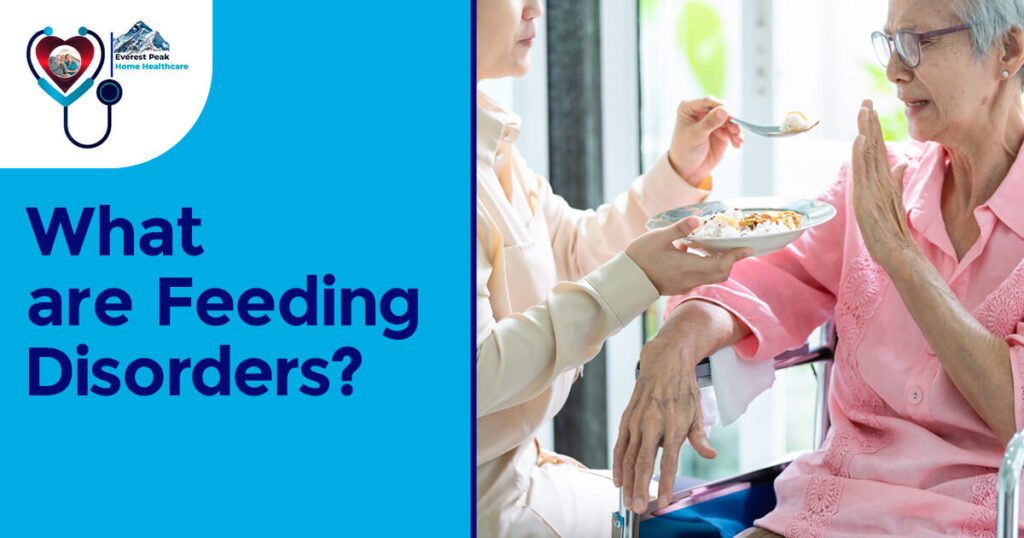
Feeding disorders involve a problem of accessing, intaking, or even swallowing food and liquid in both infants and throughout the lives of individuals up into very old age. Feeding problems can also arise from a variety of causes, such as developmental, sensory, or medical issues, which often need individualized interventions in order to maintain safety and sufficiency of intake.
Dysphagia: Dysphagia is basically the difficulty of swallowing which may lead to different complications like choking and starvation. An occurrence of dysphagia in a person may be due to stroke, any neurological problem, or even some congenital structural abnormalities in the throat or esophagus.
Oral-Motor Dysfunction: There can be inadequate movements of the lips, tongue, and jaw which can also result in an inadequate possibility to chew, swallow, or drink well.
Sensory feeding disorder: Some individuals may have a phobia against the texture, taste, or temperature of food, which might eventually lead to some form of diet restriction and subsequent nutritional issues.
Feeding disorders are handled at Everest Peak by our speech therapists, in collaboration with clients and their families. Some interventions may include building up the strength of oral-motor muscles, teaching safe swallowing techniques, or gradually introducing new foods or textures in a safe environment.
Who Gives Speech-Language Therapy?

Speech-language therapy is offered by licensed and certified professionals called speech-language therapists or speech-language pathologists (SLPs).There is yet another team of experienced-yet-committed-trained and professional SLPs by Everest Peak, who merit their time and labor for these successful achievement goals of the clients.
Speech therapy at Everest is mostly done at our centers; at times, the SLP comes to the school for children or uses teletherapy for those patients who need services from a distance. These are some of the behavioral differences of toddlers who are just beginning to speak to adults who are recovering after a stroke or damage from another medical condition and are on a regimen of therapy.
Our therapist’s work with family members, caregivers, and other relevant professionals for holistic therapy. In children, parents are also active participants in therapy sessions. In adults, therapy may include co-joint treatment by a multidisciplinary team that involves occupational therapists, neurologists, and dietitians to address more complex needs.
Conclusion
Speech-language therapy is much more than just a treatment-it is the path toward a life of improved communication, better understanding, and a more effective way of relating. It is through the assistance of experienced speech-language pathologists, at Everest Peak that patients are enabled to unlock the doors of opportunities for greater welfare. Everest Peak is offering personal care with innovative techniques and a collaborative approach to assist people to succeed in every area of life, our mission is to ensure that each client has the tools and confidence to reach their full potential.

